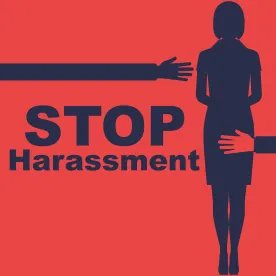On February 10, 2022, the US Senate passed the Ending Forced Arbitration of Sexual Assault and Sexual Harassment Act of 2021 (the Act), a bipartisan bill that invalidates and renders unenforceable predispute arbitration agreements in any case alleging sexual assault or sexual harassment. The US House of Representatives passed a version of the bill on February 7, 2022. US President Joe Biden is expected to sign the bill into law soon.
IN DEPTH
A number of states previously passed similar legislation barring mandatory arbitration provisions of sexual misconduct claims but were subject to preemption under the Federal Arbitration Act (FAA), which provides that arbitration agreements (like other contracts) “shall be valid, irrevocable, and enforceable” unless they are the product of fraud or unconscionability or are otherwise unenforceable as a matter of generally applicable contract law. The Act is not subject to any such preemption defense.
The Act does not, however, forbid arbitration on other claims between employers and employees. Employers can, and should, continue to use predispute arbitration agreements (whether they expressly exclude sexual misconduct claims or not) with the understanding that they will be unable to enforce arbitration of sexual misconduct claims without the employee’s consent. Employers should also review applicable state laws governing arbitration that may prohibit mandatory arbitration of other employment claims, although such state laws risk being preempted by the FAA.
WHAT THE ACT DOES AND DOES NOT COVER
The Act bans employers from enforcing predispute arbitration agreements to arbitrate claims of sexual assault and sexual harassment, whether brought in an individual capacity or in a joint, class or collective action.
The pending law also dictates that any dispute over the Act’s application to an employee’s claims (issue of arbitrability) must be decided by a court, not an arbitrator—even where the arbitration agreement attempts to delegate such authority to an arbitrator. Any disputes over arbitrability will also be governed by federal law. It remains unclear whether the Act could later be extended to claims for gender discrimination.
Although the Act bars employers from mandating that employees arbitrate sexual misconduct claims, it does not ban employees from electing to arbitrate claims for sexual assault and sexual harassment, an acknowledgment that some employees would prefer to privately arbitrate their dispute over publicly litigating it in court. Under the Act, the decision as to which form of dispute resolution to choose rests entirely with the employee.
The soon-to-be law will apply retroactively. Therefore, to the extent current employees are subject to arbitration agreements that require them to arbitrate sexual harassment or sexual assault disputes, employers will no longer be able to enforce such agreements in relation to those claims.
THE ACT FOLLOWS A TREND THAT BEGAN AT THE STATE LEVEL
While the Act is the first of its kind at the federal level, several states already enacted state law prohibiting enforcement of arbitration agreements against employees claiming sexual assault and/or sexual harassment in the wake of the #MeToo movement. In 2018, New York passed a law amending the state’s Civil Practice Law and Rules (CPLR), which govern legal procedure in the New York unified court system, to make predispute agreements to arbitrate sexual harassment claims illegal and unenforceable. (N.Y. C.P.L.R. Art. 75 §7515.) That same year, Vermont took a more nuanced approach, amending the state’s employment regulations to set limitations on what employers can mandate in employment contracts related to sexual harassment generally. (21 Vt. Stat. Ann. §495h (2018), amended by Vt. H.B. 707 (May 28, 2018) (prohibiting employers from requiring employees to sign any agreement or waiver as a condition of employment that restricts them from participating in an investigation or purporting to waive a substantive or procedural right or remedy and requiring that any agreement to settle a claim of sexual harassment expressly state that it does not restrict the employee’s rights to pursue any other kind of relief).)
WHAT THIS MEANS FOR EMPLOYERS
Employers can continue using their current mandatory arbitration agreements, even if they do not expressly carve out an exception for sexual harassment and sexual assault claims, so long as they do not enforce the agreement in the event that an employee raises such a claim and chooses to litigate in court.
Alternatively, some employers, particularly those with operations in states that have similar restrictions against compelling sexual misconduct disputes to arbitration, may choose to revise their current arbitration agreements to exempt sexual harassment and sexual assault from arbitration in the same way that state workers’ compensation claims or federal Employee Retirement Income Security Act (ERISA) claims are exempt from arbitration.
Complaints filed against employers routinely contain numerous causes of action. Employers faced with hybrid litigation that involve sexual misconduct and non-sexual misconduct claims should also consider seeking a court order to “stay” the non-arbitrable sexual misconduct claims pending resolution of the remaining claims in arbitration.



 />i
/>i

